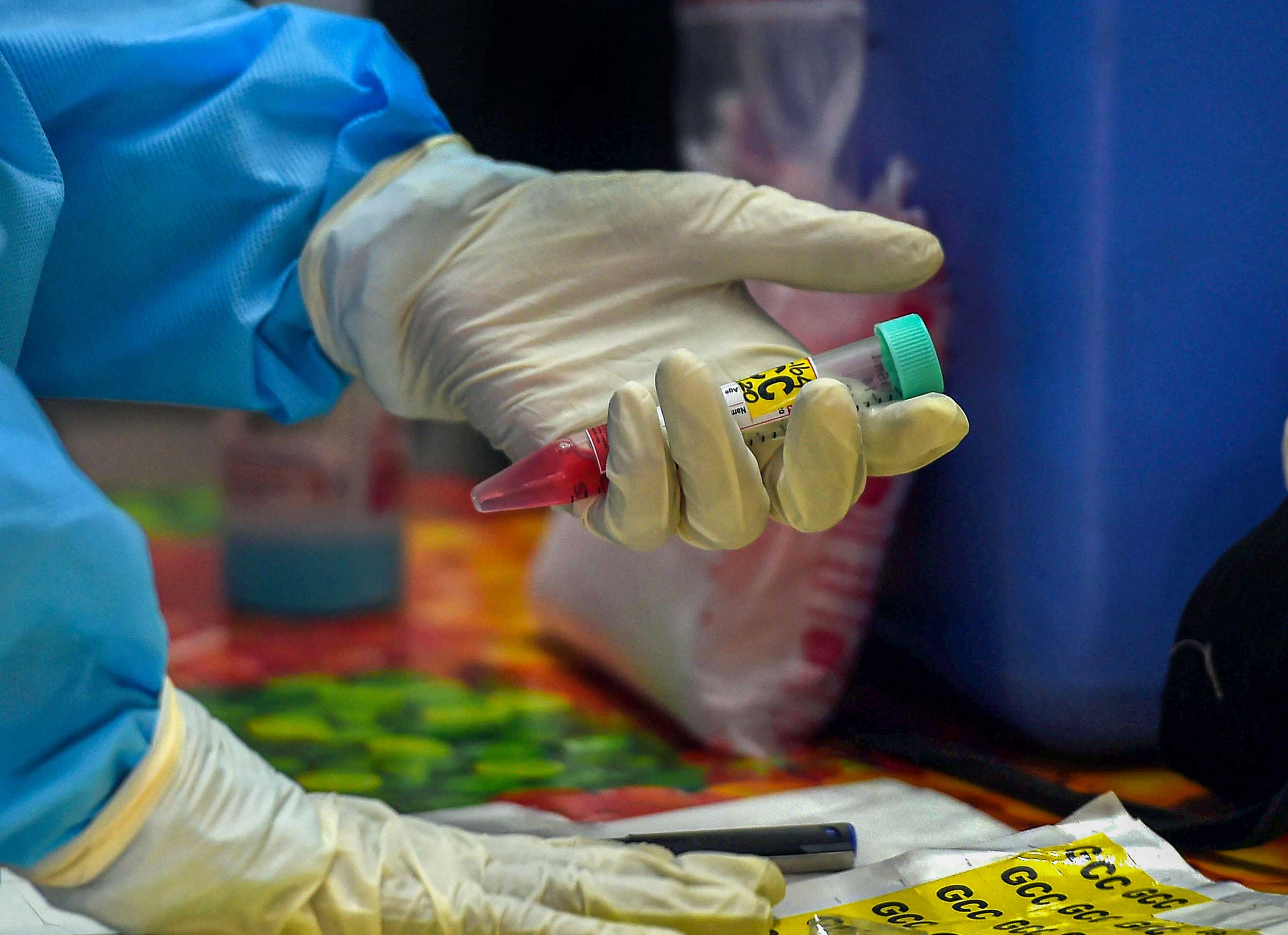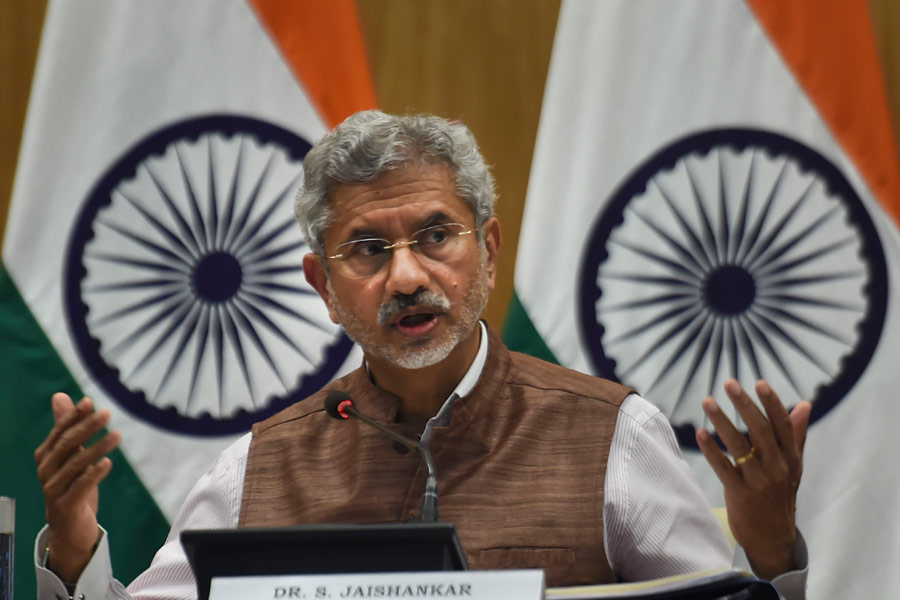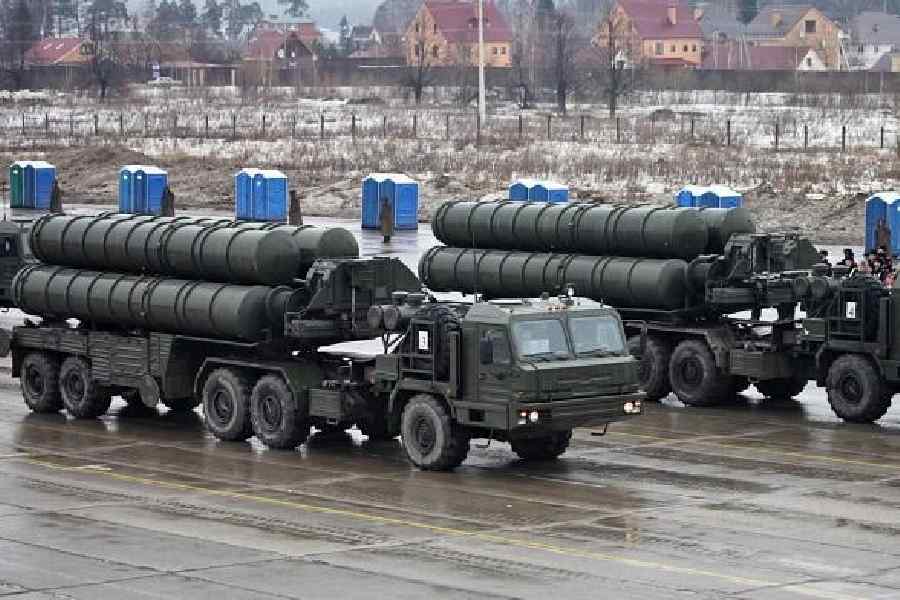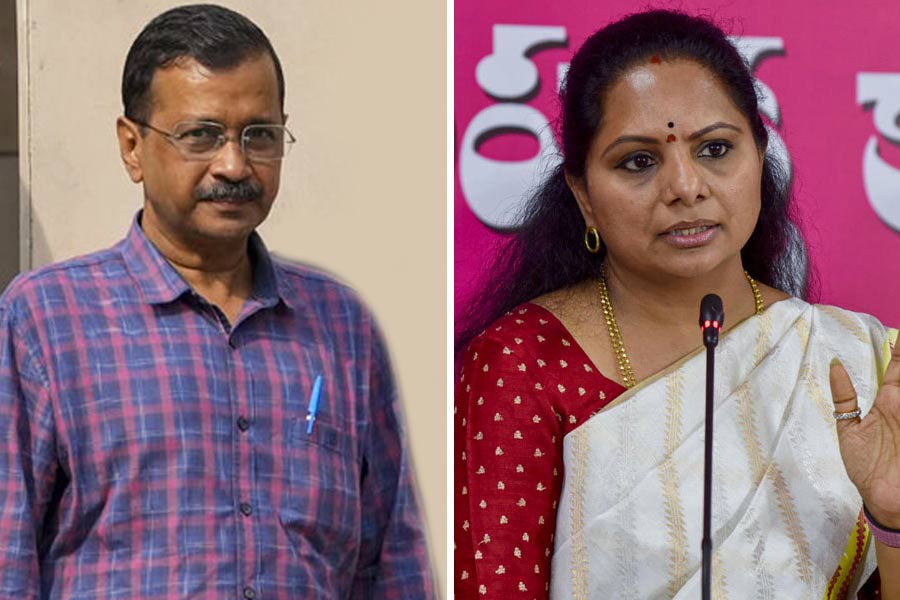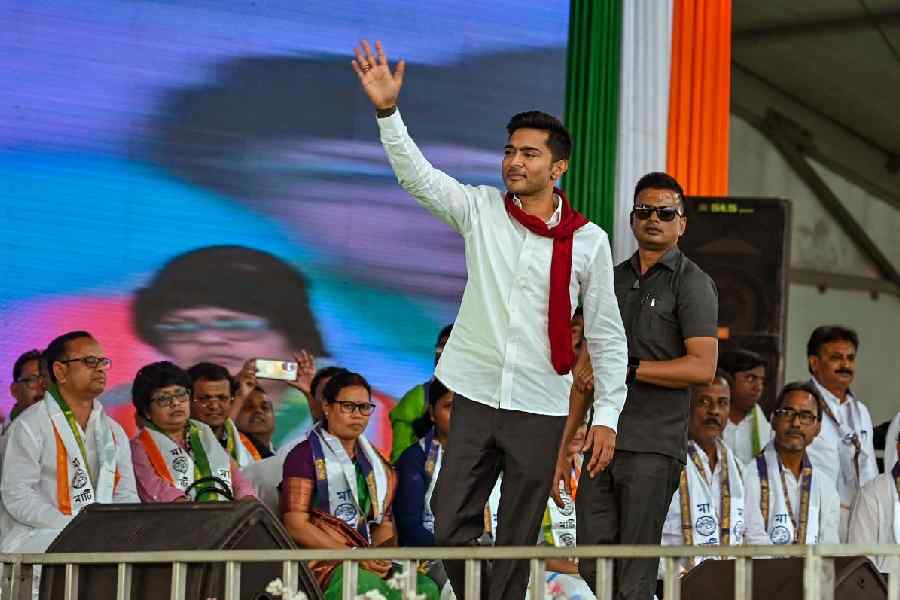A medical panel is set to propose tests for the new coronavirus on even non-symptomatic persons from random households in every district across India once every two weeks to track the extent and changing spread of the infection.
A 12-member epidemiology and surveillance group set up by the Indian Council of Medical Research has pencilled a proposal for a nationwide, periodic district-level surveillance that will for the first time provide high-granularity information about the distribution of the coronavirus.
The health ministry had up to 5pm on Wednesday recorded 11,933 confirmed cases of Covid-19, including 1,344 patients who have recovered and 392 dead. The patients are scattered across 377 districts, including 170 labelled as hotspots for their large numbers, clusters, or quick doubling times.
Almost all these patients were detected because they had respiratory symptoms or were contacts of positive cases.
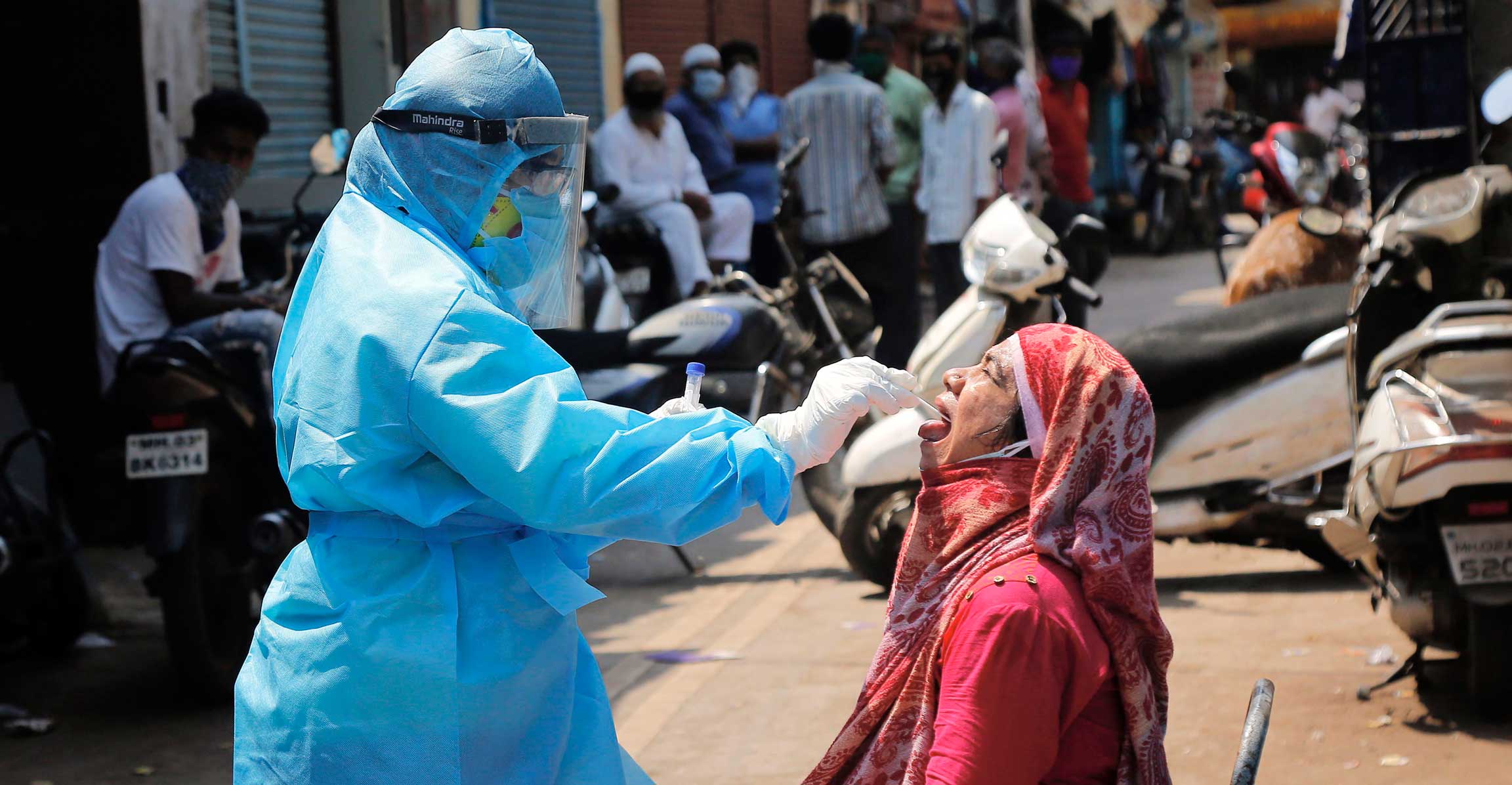
A medic conducts a test of a woman for Covid-19 in a containment zone at Kurla, Mumbai, on Tuesday. (PTI)
The district-level surveillance outlined by the ICMR panel proposes to use rapid antibody tests to sample people in random households in each district.
The proposal, although not final yet, is to sample one person from 400 households in all districts every two weeks. Panel members said such a periodic nationwide surveillance would be carried out through local health authorities.
“In the post-lockdown phase, a periodic district-level surveillance would allow health authorities to impose and lift localised lockdowns only where they are needed,” a panel member told The Telegraph. “This will be a major benefit given the social and economic costs that lockdowns cause, especially to the poor.”
While the vast majority of the confirmed cases of Covid-19 infections in the country thus far are believed to be linked to people with a recent foreign travel history or their contacts, a nationwide surveillance has turned up evidence for community transmission of the virus.
The ICMR last week reported the findings of a surveillance exercise by 104 labs nationwide that had diagnosed 40 hospitalised patients with severe acute respiratory illness as coronavirus-positive although they had no travel or contact history.
The panel’s proposal for district-level surveillance is in line with pleas the government has received from several public health experts to expand the screening nationwide to generate evidence for the true distribution of the infection. While public health experts have sought tests on people with mild respiratory symptoms, the household surveillance will also seek samples from non-symptomatic people.
But the panel members underlined that India was still awaiting rapid antibody tests and other medical experts highlighted that the tests themselves still needed to be validated.
Unlike tests for Covid-19 diagnosis that look for viral genetic material and take up to six hours, the antibody kits take less than 30 minutes but look for antibodies to the virus in the blood samples of people who may have been exposed to the virus.

